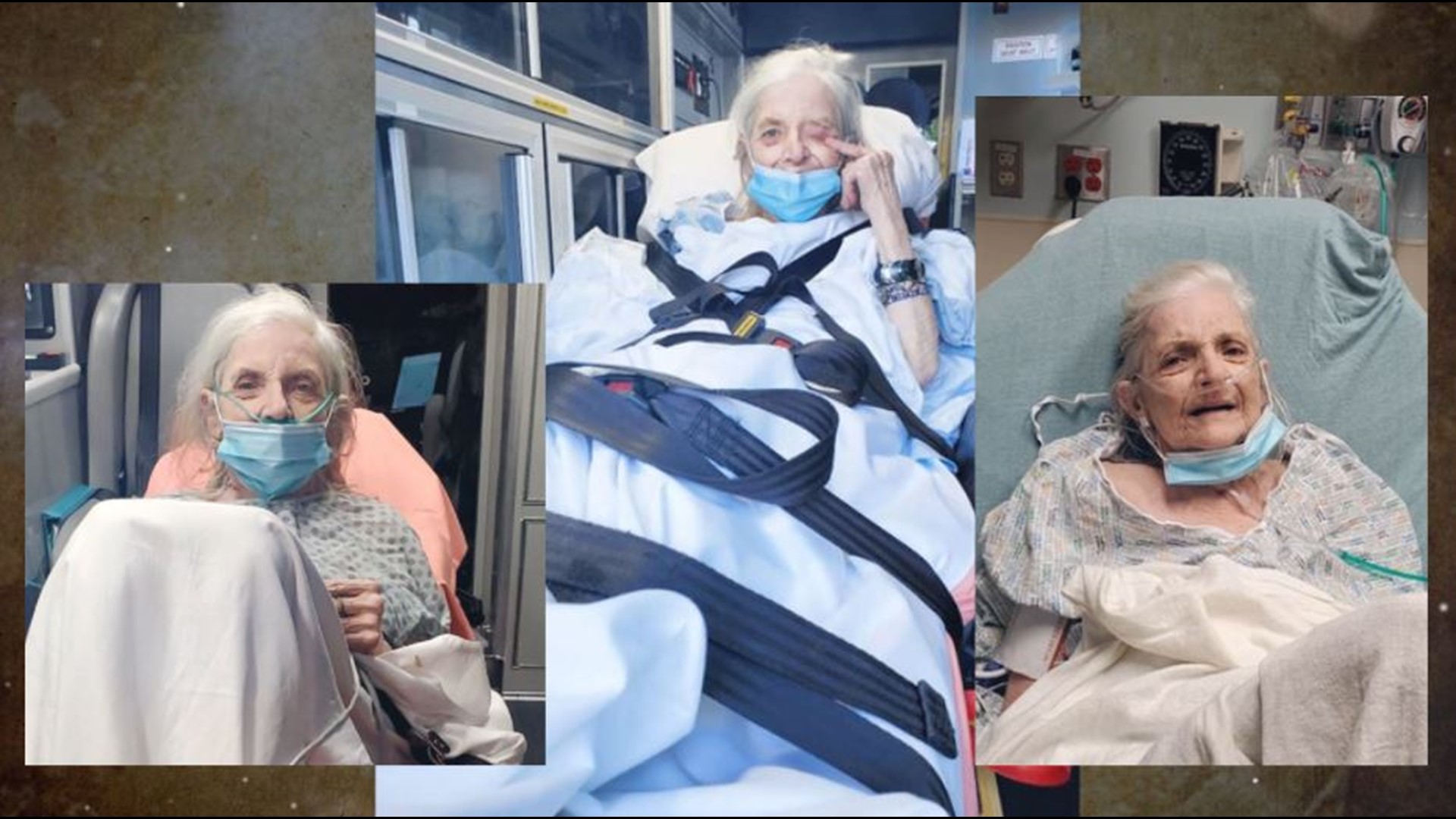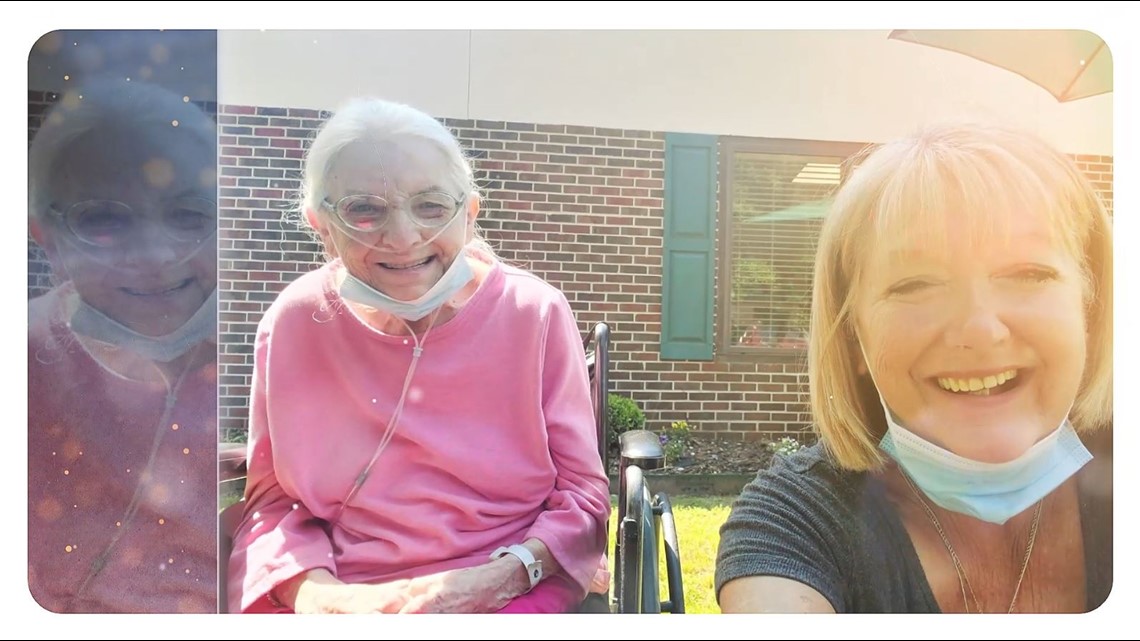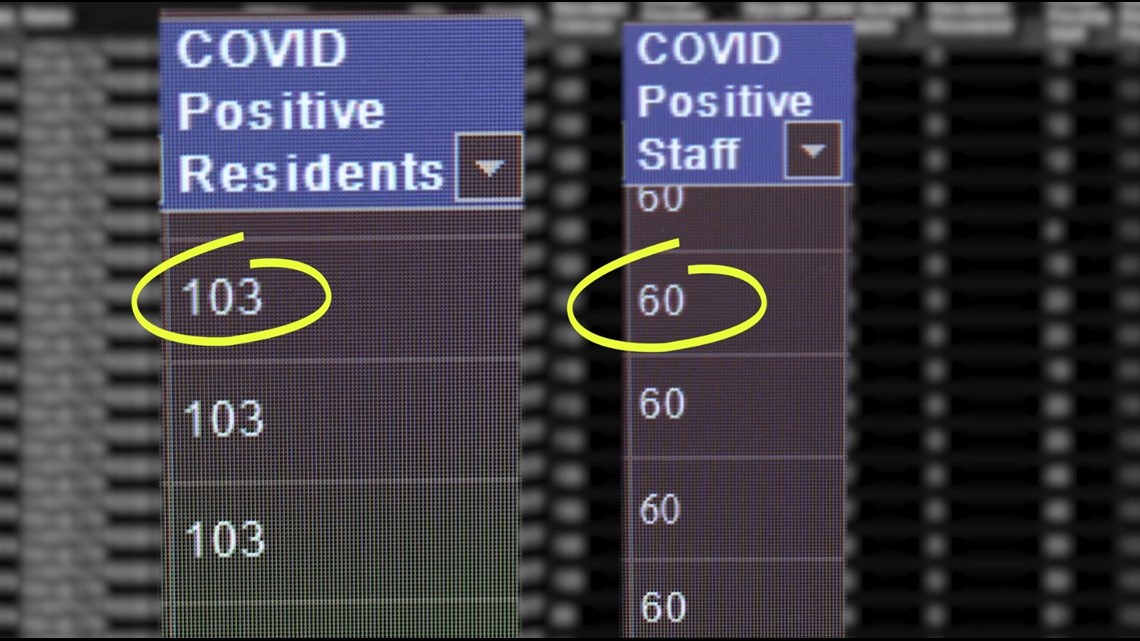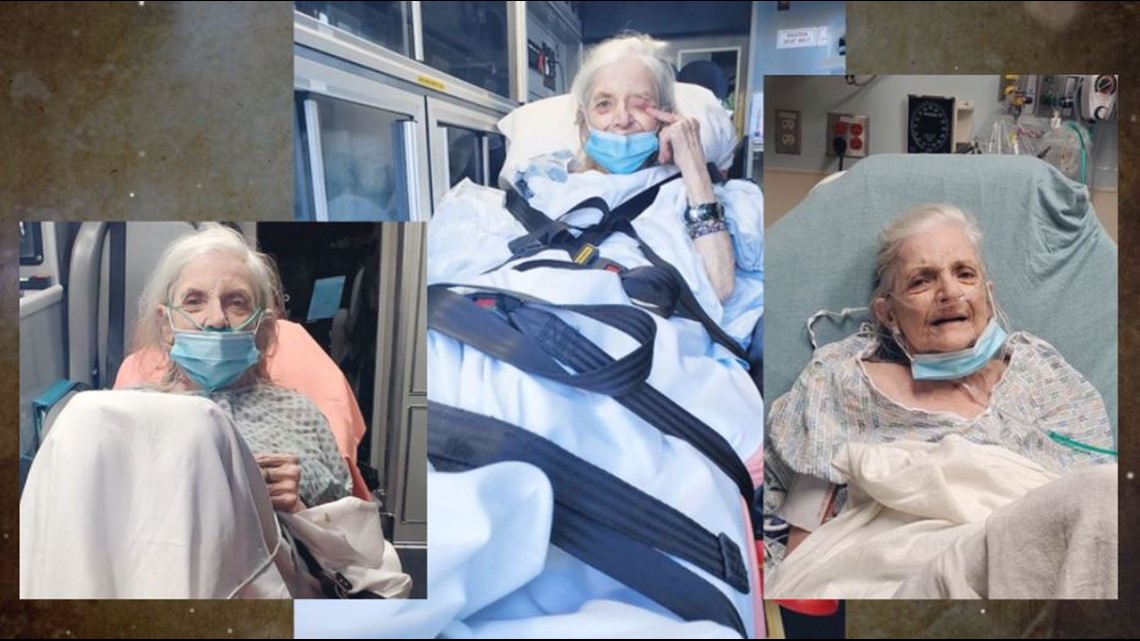She was hospitalized with COVID-19. 10 others died. Their nursing home got a $118K bonus for protecting residents
COVID magnified nursing homes troubles, from the lack of workers to infection control. The government hoped money would help, but critics question the accountability

The pandemic has magnified troubles within our nursing homes. From the lack of qualified workers to infection control, the government has tried to use money to fix the problems. But is money hiding accountability?
11Alive's investigative team, The Reveal, found dozens of Georgia nursing homes that received bonus money for doing well protecting residents from COVID-19, while also fining them for safety violations. Records show a lot of the violations were related directly to infection control.
“This is very upsetting, can you believe that,” Lori Ciminelli asked.
She waited 14 months to sit outside with her mother, Carol. As if in celebration, the weather offered a perfect spring day. The two sat within feet of each other as Frank Sinatra crooned on her iPhone, Carol softly singing along.
Ciminelli moved her mom into Chestnut Ridge in Cumming just months before COVID-19 shut down face-to-face visitation. Her mom, wheelchair-bound and diagnosed with dementia, needed more direct care than anyone in the family could provide.
Ciminelli says her mom loved the amenities.
“They had bingo, they had games, they had a beauty parlor,” she said with a smile, before shifting her tone to add, “Then it started.”


VISITATION DURING PANDEMIC
Ciminelli fought hard over the past year to get visitation to resume sooner, concerned with the impact the isolation was having on loved ones. She spent hours in the legislative halls fighting for HB290, which would have mandated designated caregivers get face-to-face visitation under rules set by each facility. The bill failed under heavy opposition from hospitals and nursing homes concerned about liability and risk.
But Ciminelli says those visits are key to keeping up resident morale and health and for keeping an eye on the care received.
Limited to window visits most of the past year, there are days Ciminelli has wondered whose clothes her mother is wearing, why her water isn’t placed within reach, or how illnesses like a UTI can go undiagnosed by those on the inside.
“She misses church. She misses hugs. Sad,” Ciminelli explained.
Every day she studied a report published by the Department of Community Health (DCH), listing the COVID-19 cases at nursing homes throughout the state. In November, Chestnut Ridge reported its first positive resident.
“All the sudden a week later, they have full patient involvement. Full staff involvement,” Ciminelli said, raising questions about infection practices.
According to the state, it actually took about three weeks for the virus to spread throughout the facility. But yes, by December just about every resident had tested positive and staff were quick to follow.


STAFFING SHORTAGES
Brian Lee, Director of Families for Better Care, says there’s usually one key reason why the virus spread so rapidly in nursing home facilities.
“The underlying cause is the lack of staff. Georgia staffing levels are horrible, horrible, horrible, tragic on so many levels. There needs to be something done to help improve staffing,” Lee said.
Georgia did try to do something. It used tax dollars to foot the $450,000 bill to hire temporary nurses at Chestnut Ridge.
According to documents obtained by 11Alive's investigative team, The Reveal, DCH has spent more than $378 million at hospitals and long-term care facilities during the pandemic to hire doctors and nurses to fill the gaps.
CAROL HOSPITALIZED
Even with the increase in staff, it was Ciminelli, a retired patient care technician that noticed her mother struggling to breathe during a window visit in December.
The facility gave her mom oxygen. But as Carol’s condition grew worse, the family demanded they call an ambulance.
At the hospital Ciminelli says doctors told them, “she has COVID pneumonia in all lobes.” Her mom would spend the next eight days battling the virus at the hospital.


What’s baffling to Ciminelli is that just one month prior to the outbreak, Chestnut Ridge had received $118,908 from the federal government – bonus money for doing a good job protecting residents from the virus.
SAFETY VIOLATIONS, GRANT MONEY
Near the end of 2020, the US Department of Health and Human Services gave more than $45 million to 321 nursing homes in Georgia through the Nursing Home Infection Control Quality Incentive Program, QIP.
What upsets some families and safety advocates, is that 42 of those facilities received fines for safety violations that same year, from the same federal agency.
“What this pandemic has done is it’s exposed the cracks within the long term care system, the staffing issues, the oversight of the nursing homes, the lax oversight,” Lee said.
Some of the fines related directly to infection control -- rooms not properly disinfected, staff going in and out without washing their hands or wearing face masks.
According to an inspection report for Heardmont Health and Resources, a nurse tested positive for COVID-19, but kept working for five days in direct contact with at least 40 residents and staff.
In almost every case, the bonus money paid for the fines… and then some.
“[It] is just a total disservice. Slap in the face, gut-punch whatever euphemism you want to use, to the residents who have already suffered so much in this pandemic. It's just a total injustice for them," Lee said.
More than half of the facilities, 52%, earning QIP had five or more residents die from COVID-19. HHS defended the payments saying:
"Nursing homes have been disproportionately impacted by this pandemic given their congregate nature and the increased challenge of controlling infections within their facilities. Nursing homes that received payments as part of the Nursing Home Infection Control Quality Incentive Program created last year were checked for having active, non-terminated certifications and against CDC NHSN quality checks. They must also comply with strict standards regarding how they utilize the resources they receive to protect their residents and staff against COVID-19. Non-compliance with any term or condition of the program may be subject to recoupment of some or all of the payments made by HHS."
The timing of those payments may have also come months before or after the violations were issued and corrected. And long term care advocates stress the infection rates inside the facility are usually just a mirror of what's happening in the community as a whole.
COVID has played a role in the death of ten residents at Chestnut Ridge throughout the pandemic, although according to state and federal inspection reports, there were no infection control deficiencies found when they visited in July, August, November, and January. In a statement from the facility's administrator, Melinda Huff wrote:
"Chestnut Ridge follows CMS, CDC and DPH guidelines, including the most recent updates released by CMS and DPH throughout this month. We are hopeful for our families and residents as Forsyth county positivity rates steadily decline."
As for Carol, investigators went out more than a month after her daughter filed the complaint. They ruled her claims - "unsubstantiated."
Still, Ciminelli says she’s keeping a watchful eye over her mother’s care. She hopes things return to the way they were. In Sinatra’s own words, “Nothing but blue skies from now on.”
The Reveal is an investigative show exposing inequality, injustice, and ineptitude created by people in power throughout Georgia and across the country.
